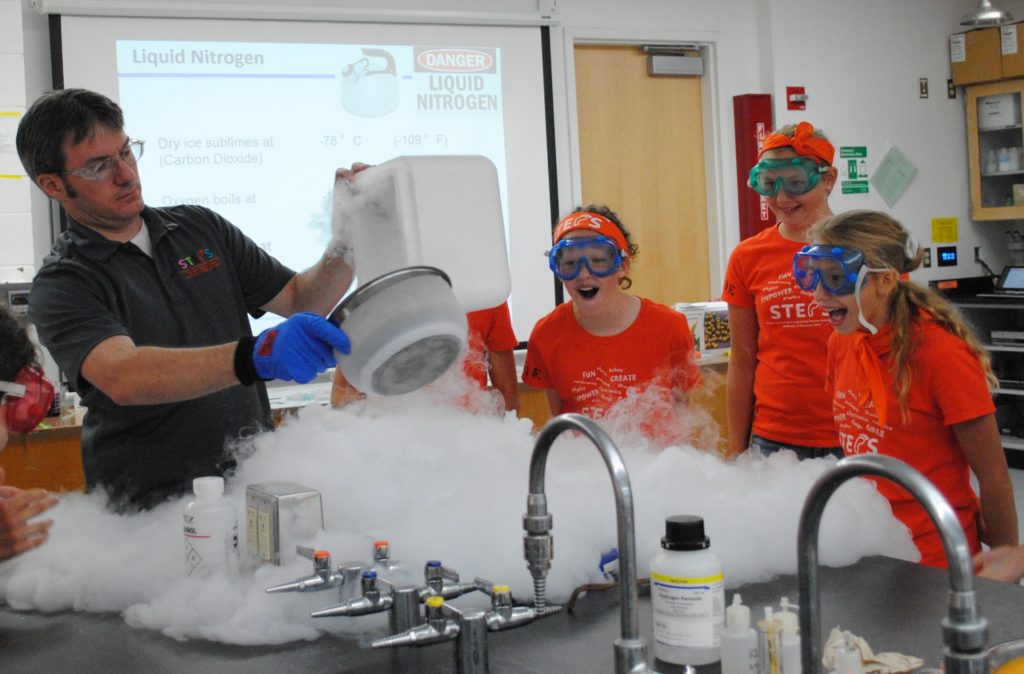
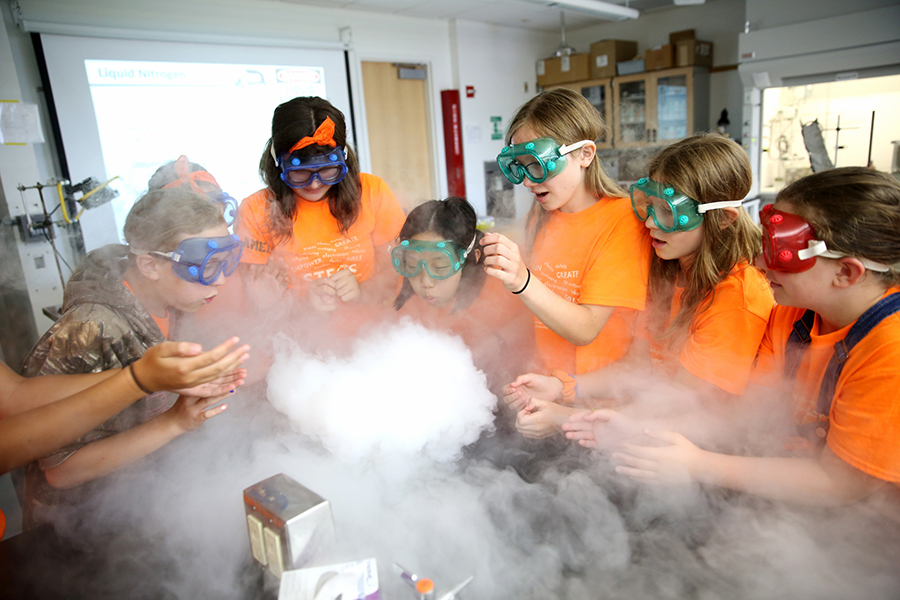
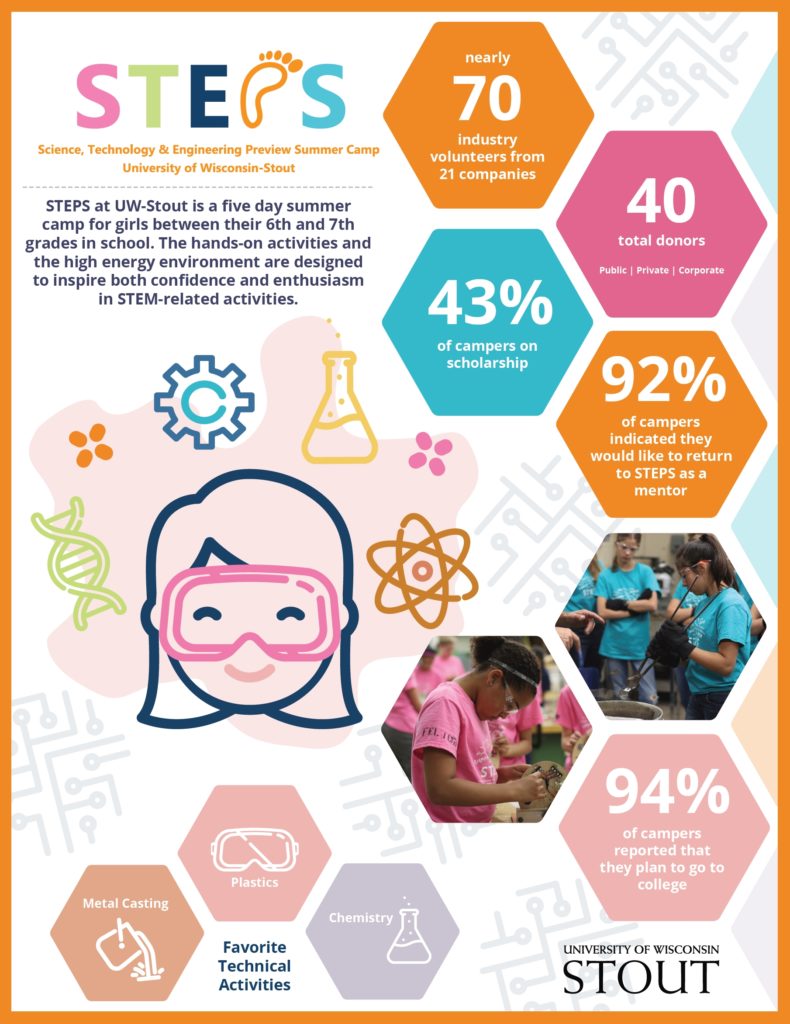
2018
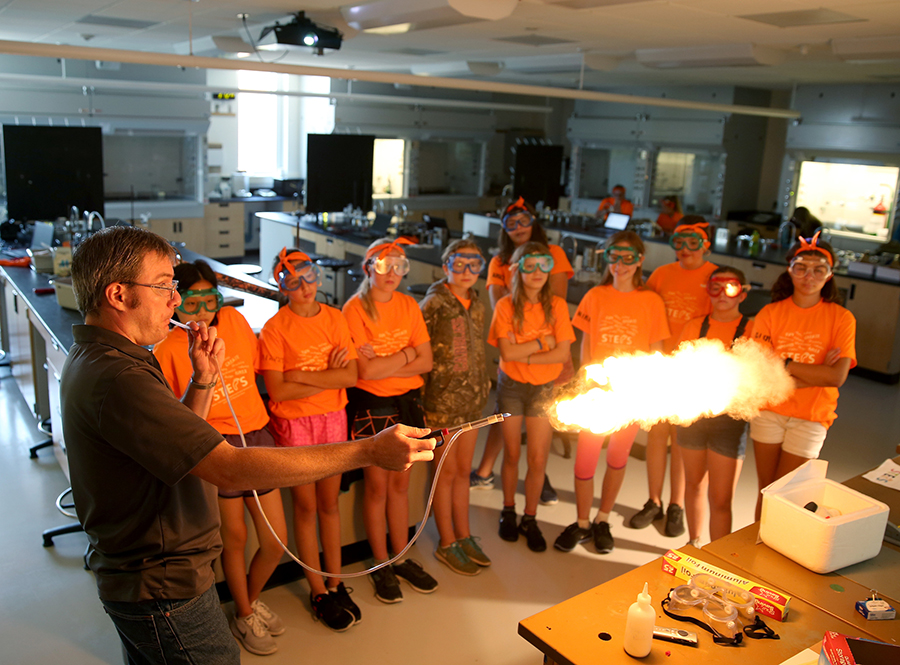
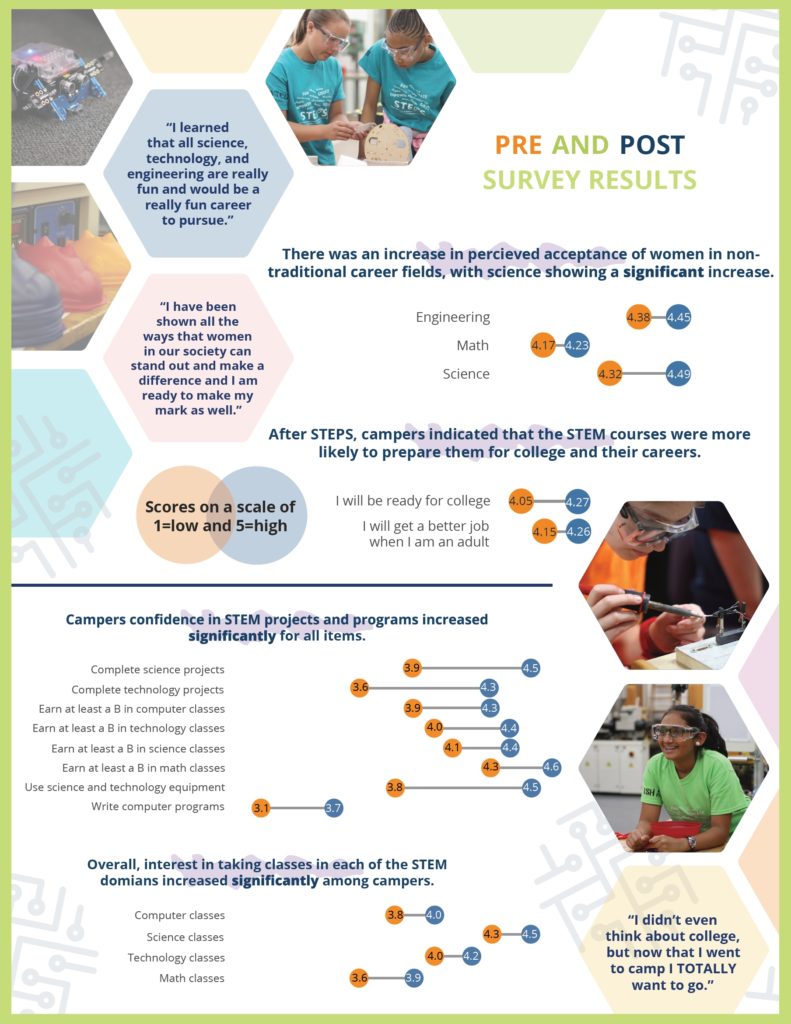
2017
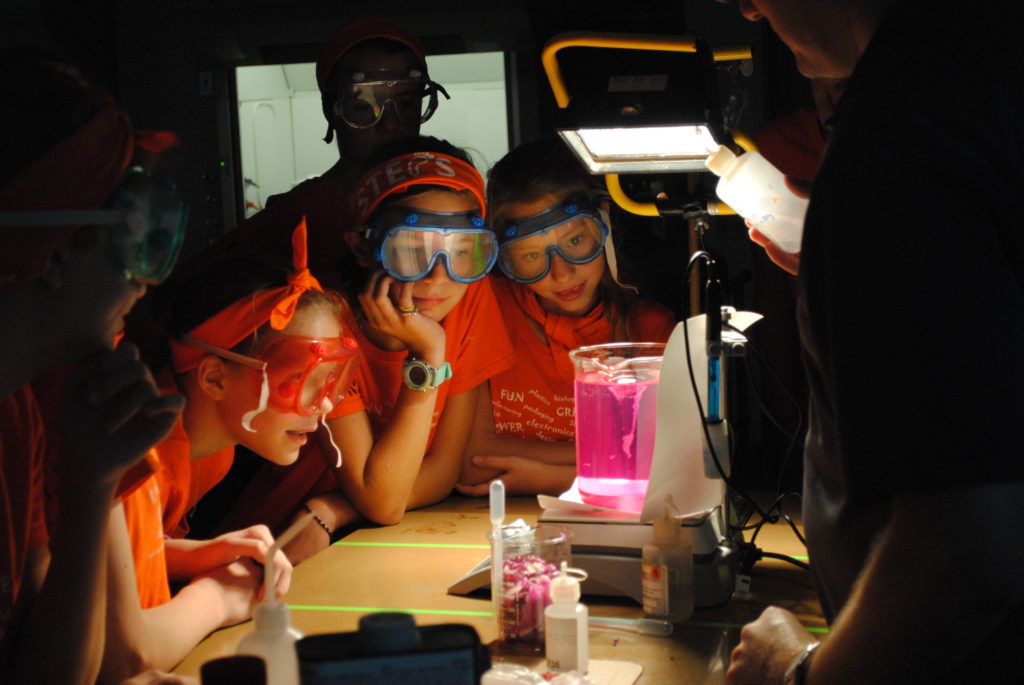
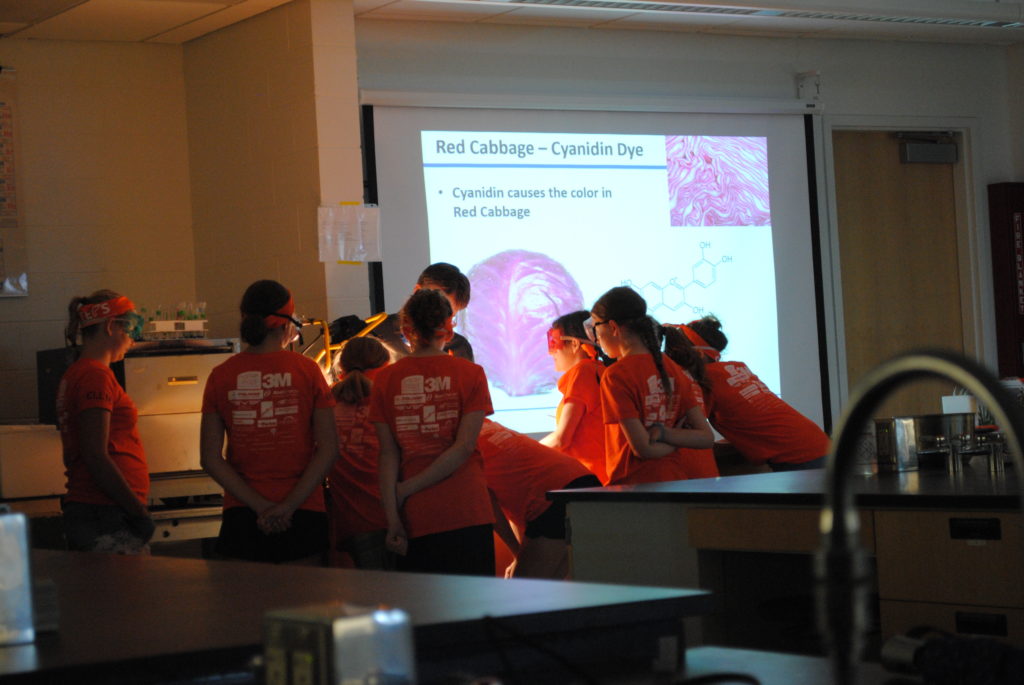
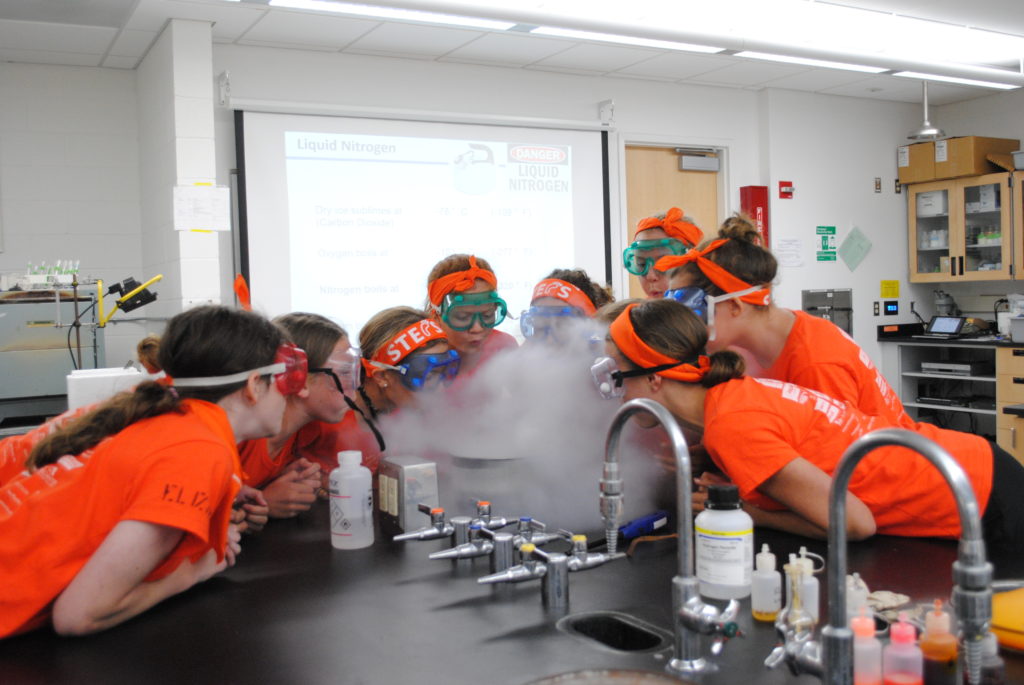
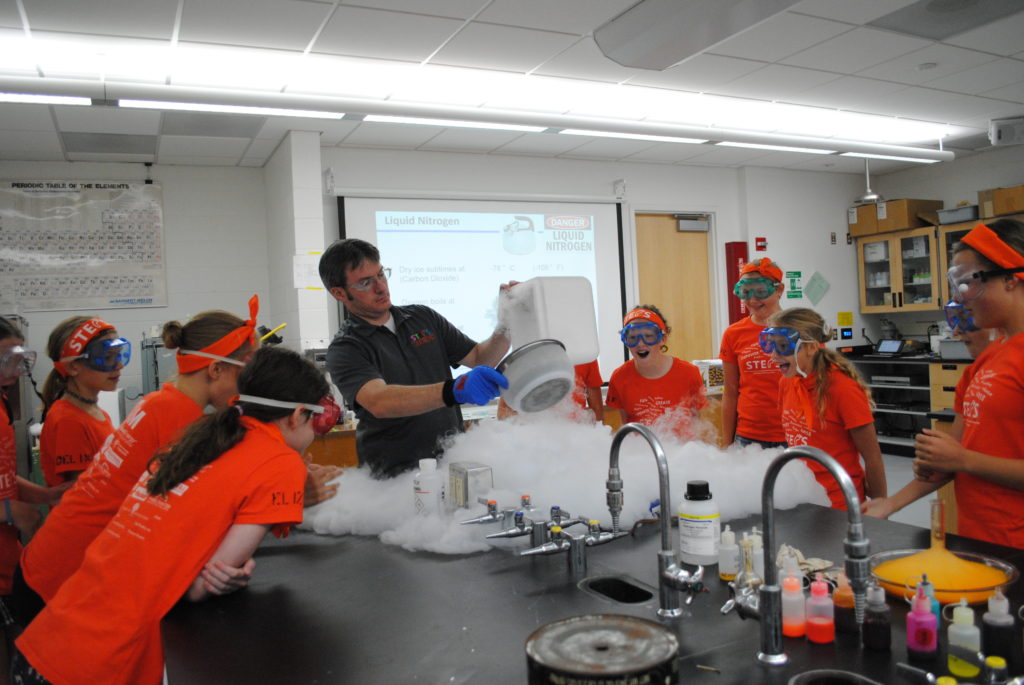
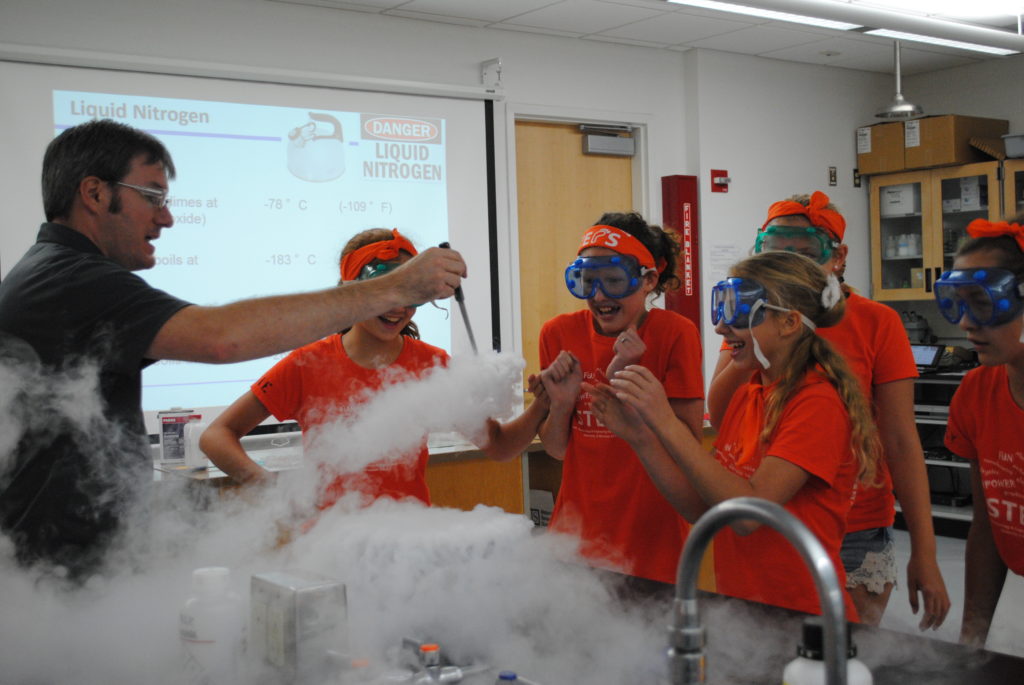
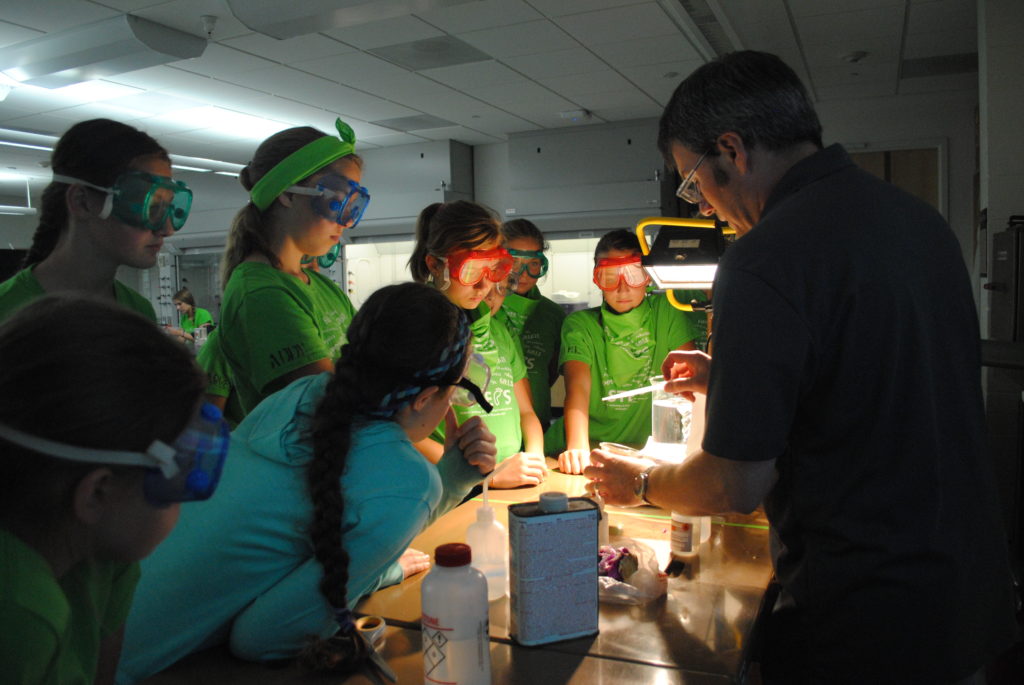
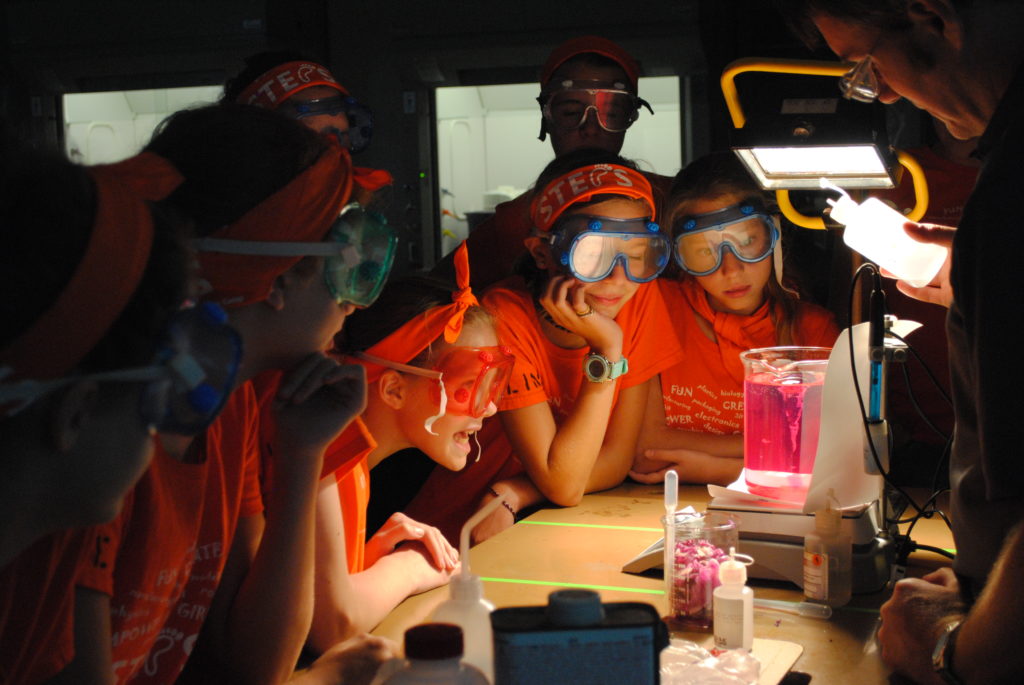
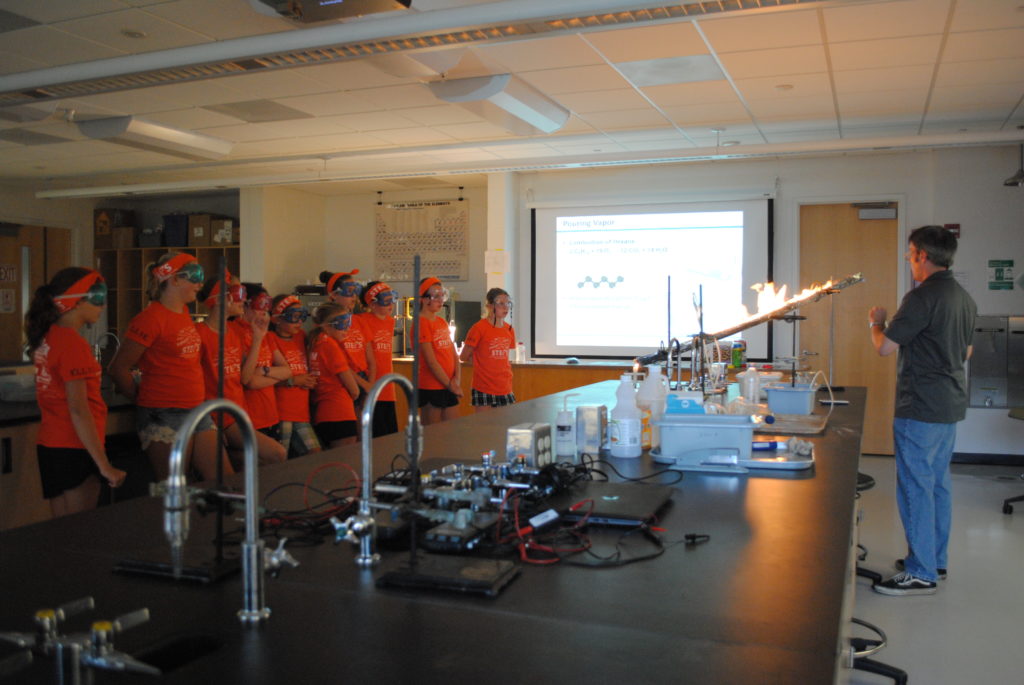
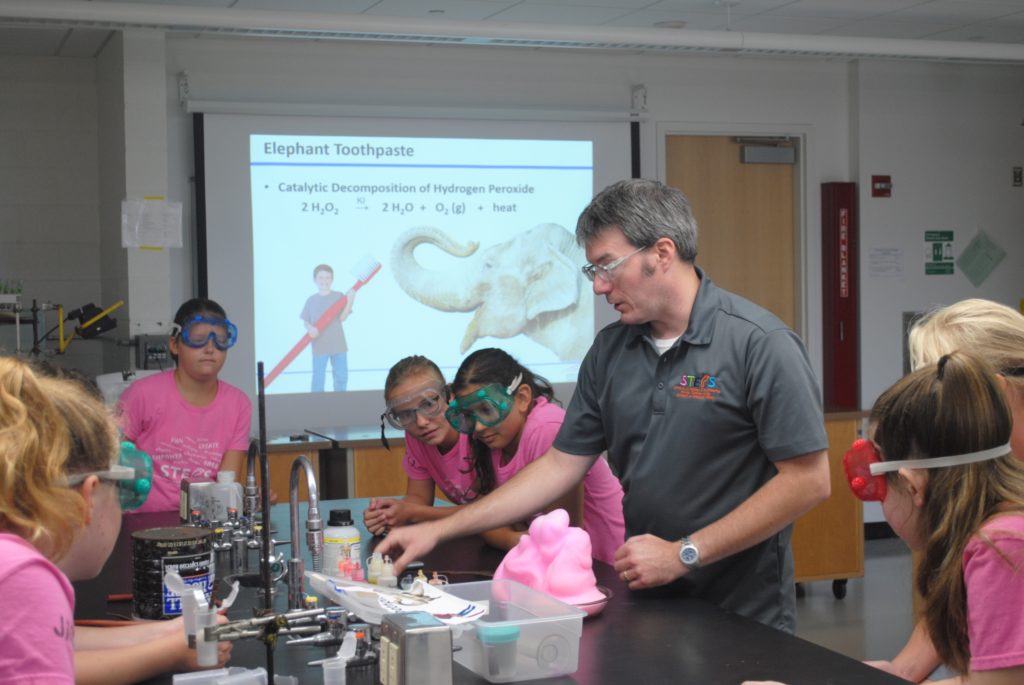
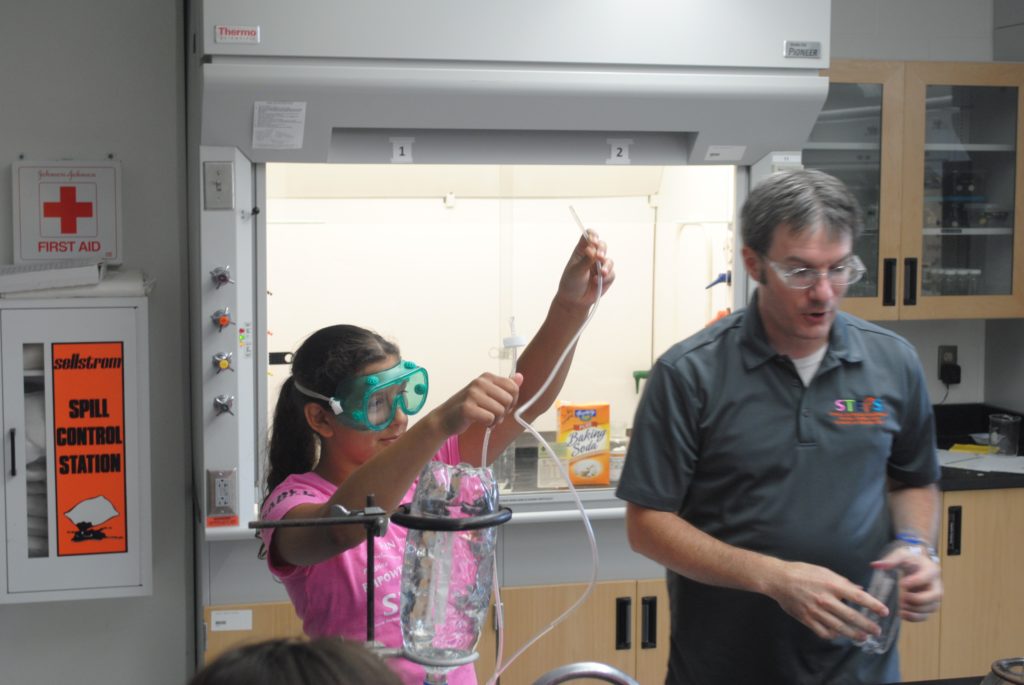
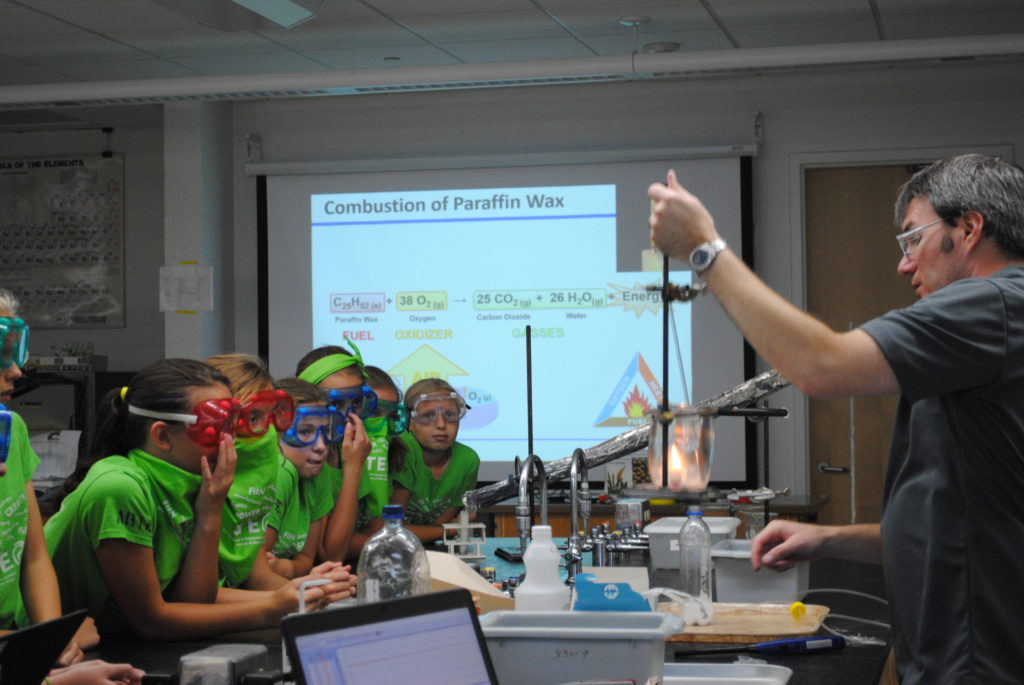
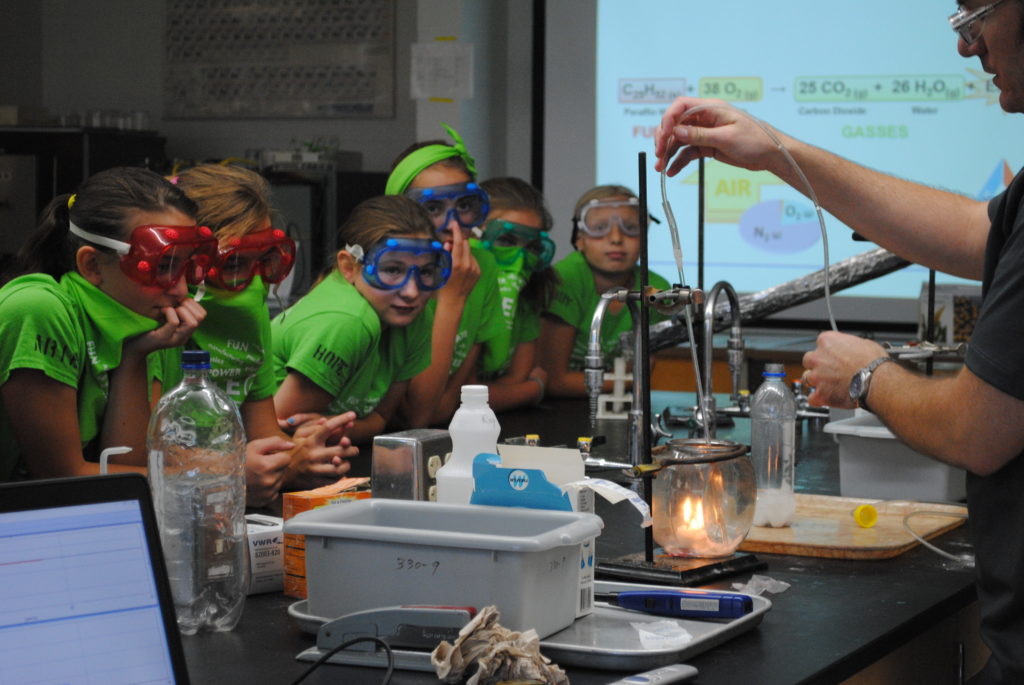
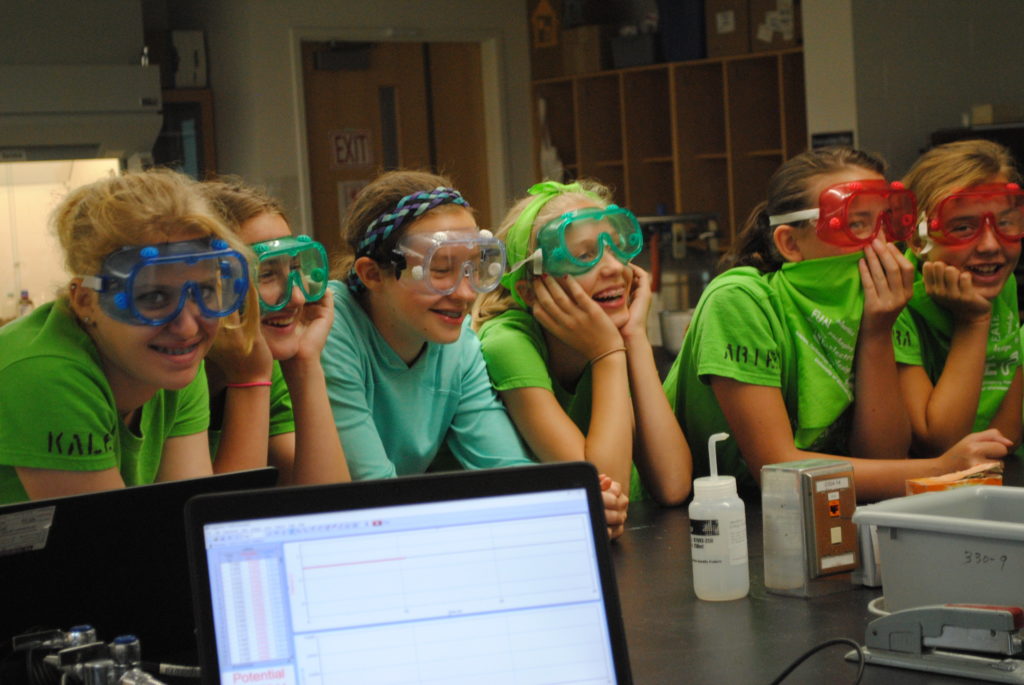
2016
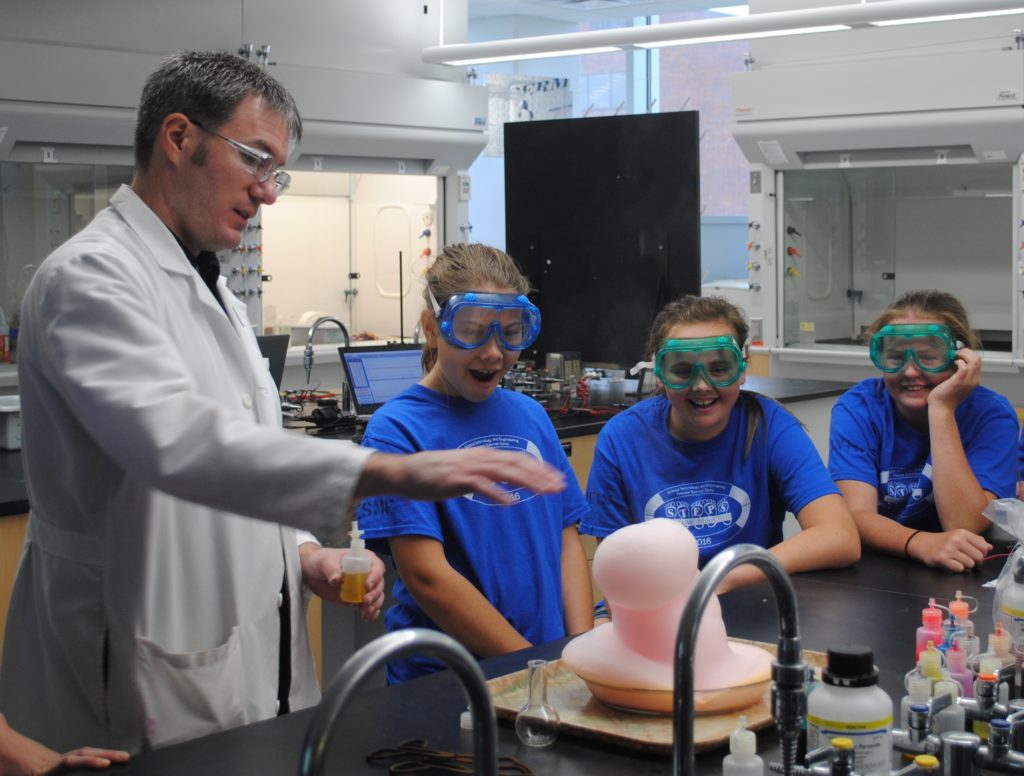
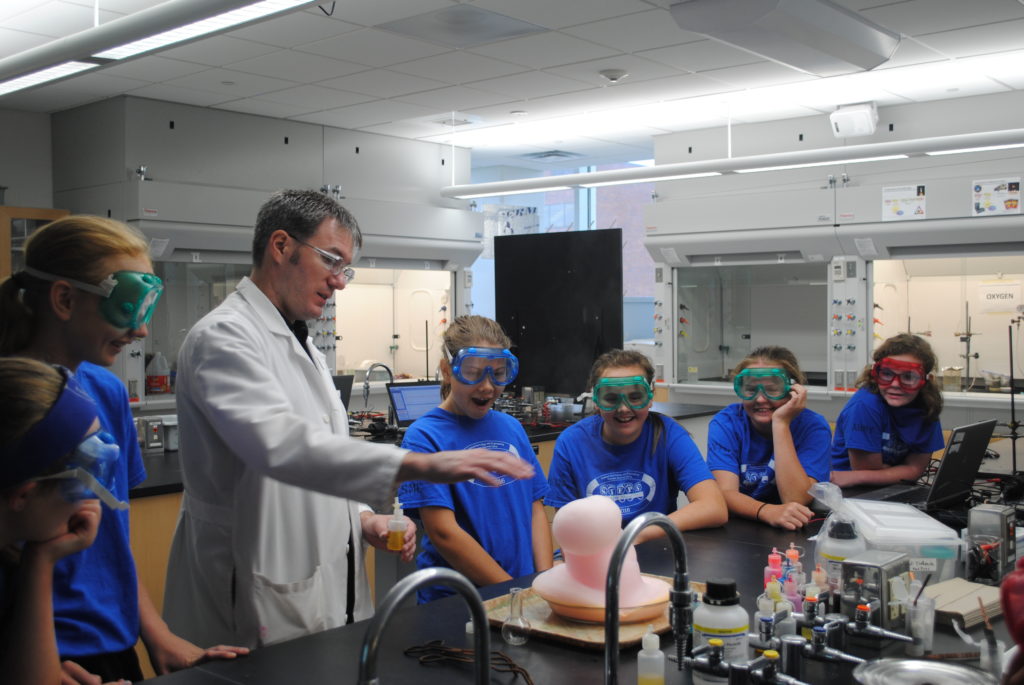
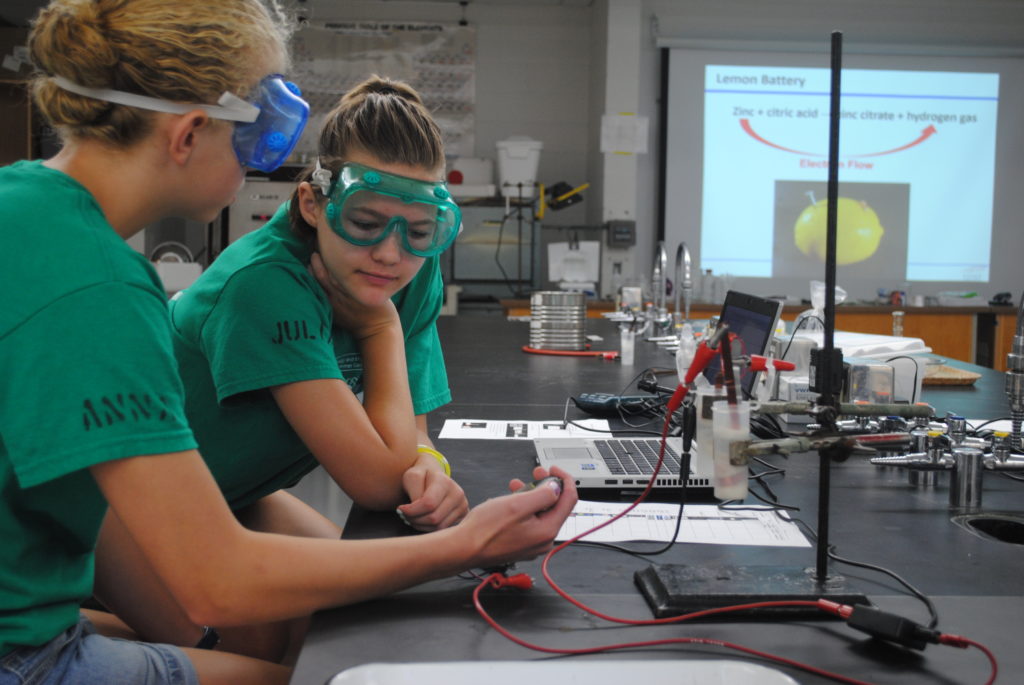
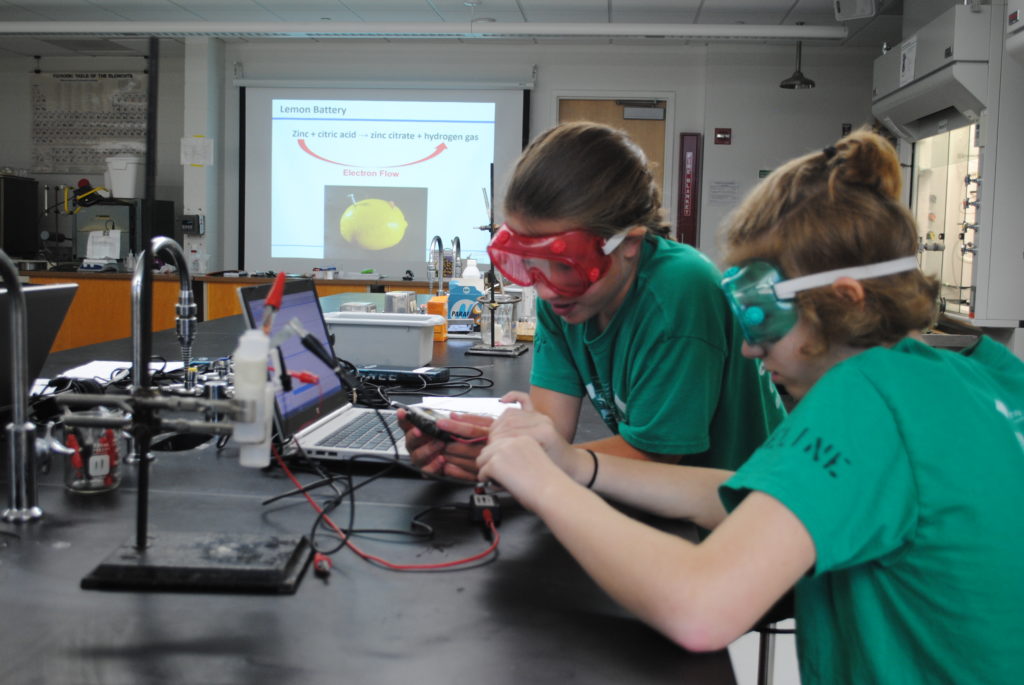
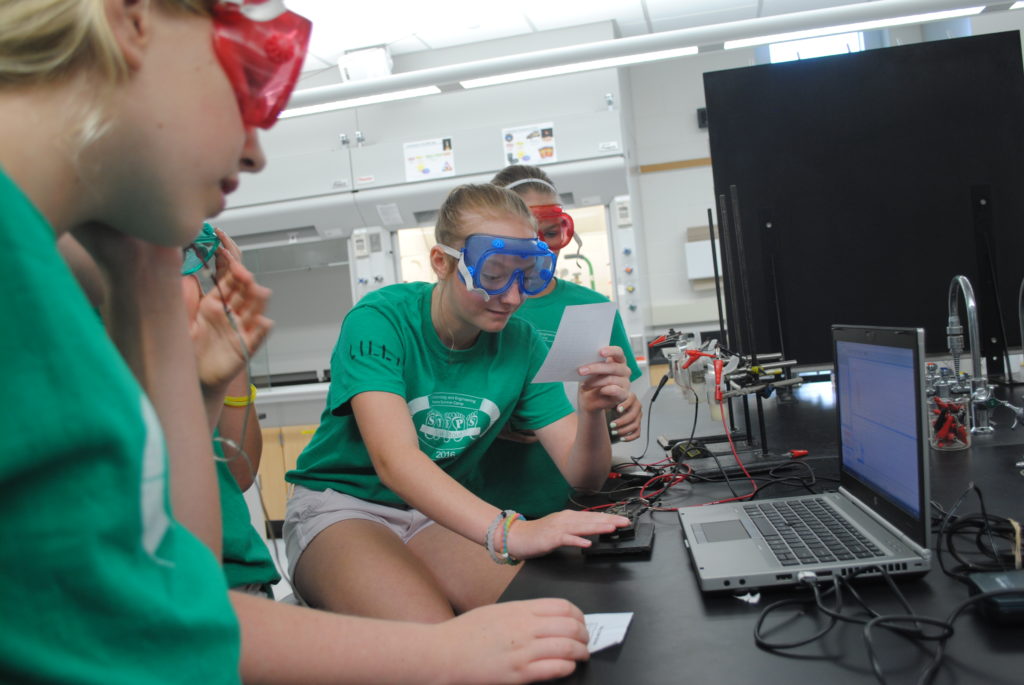
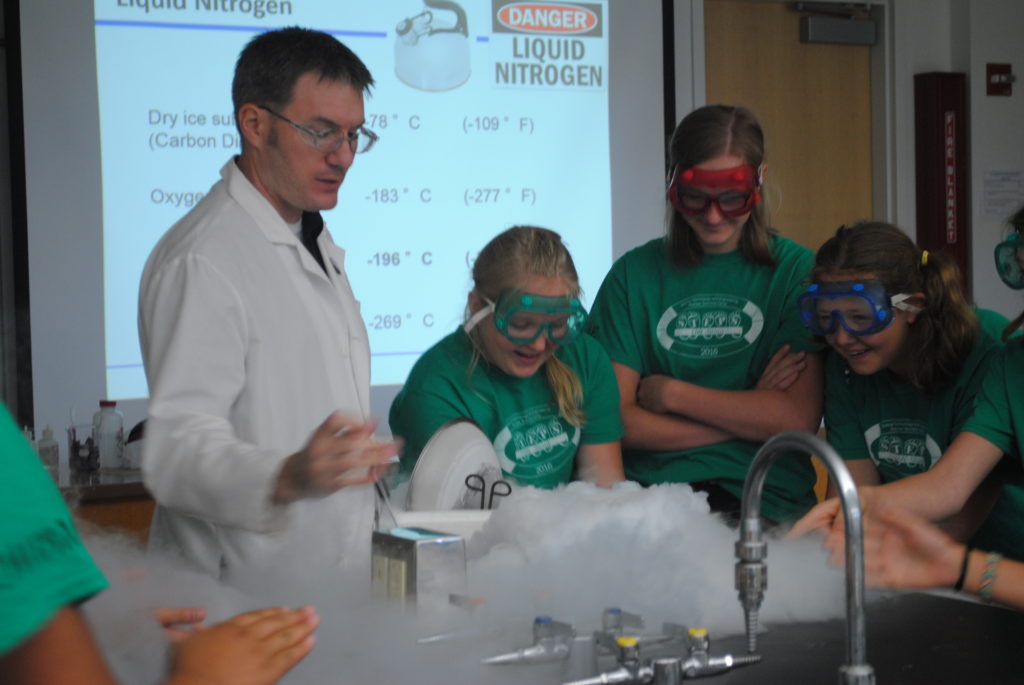
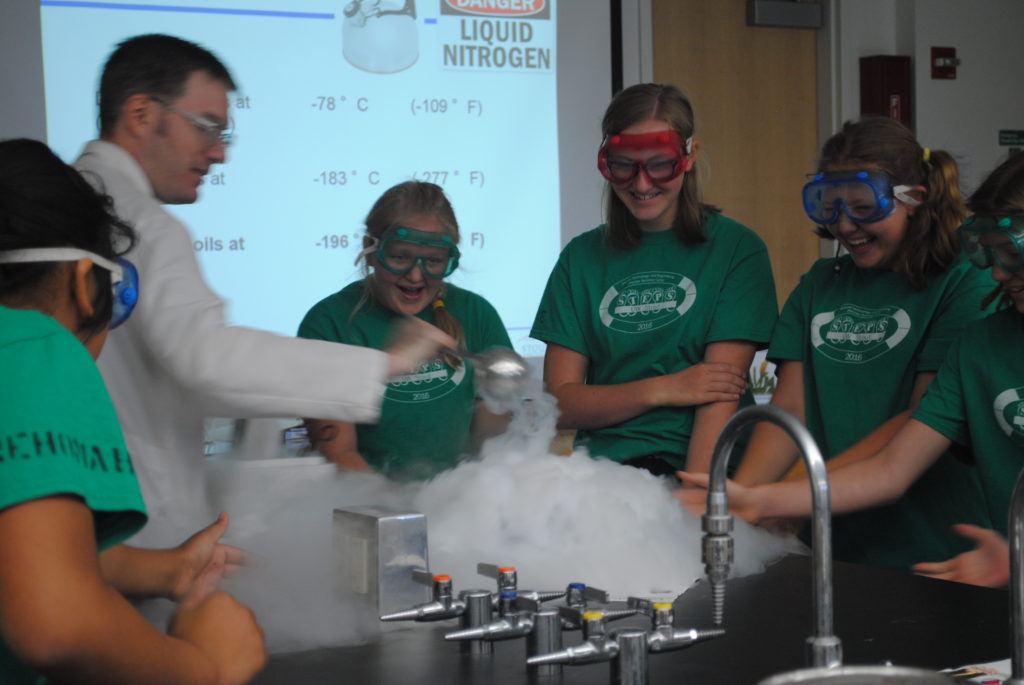
2015
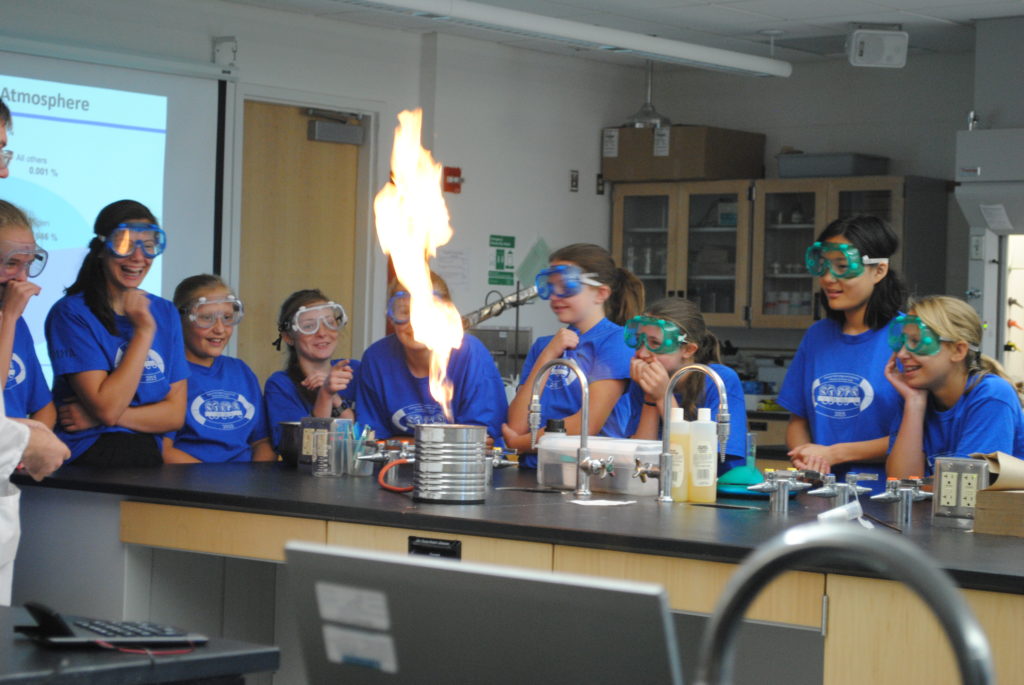
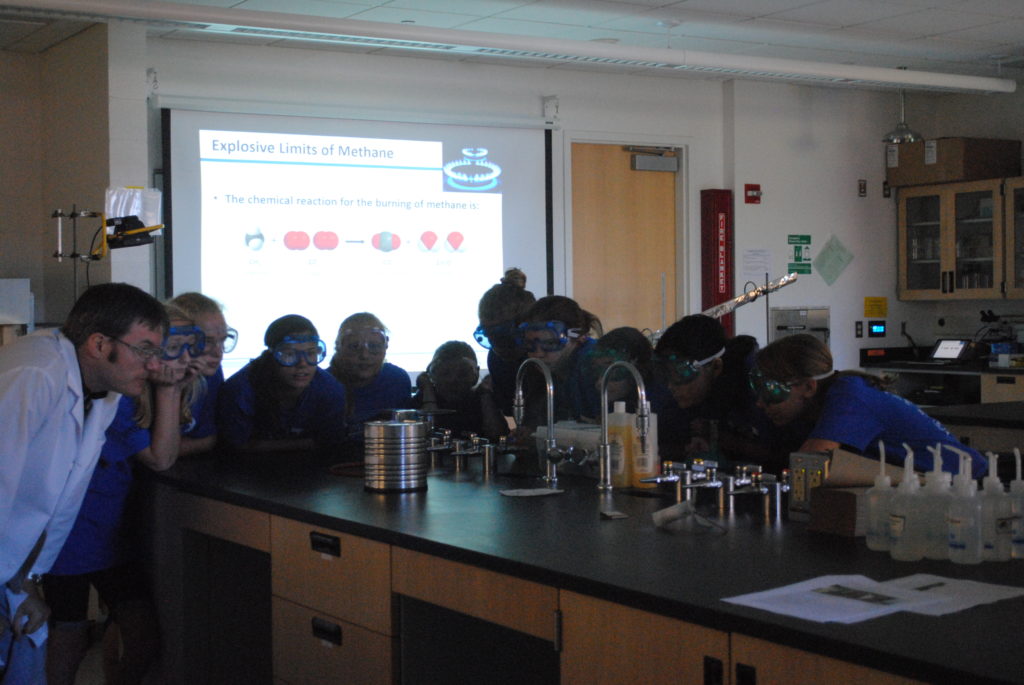
2013
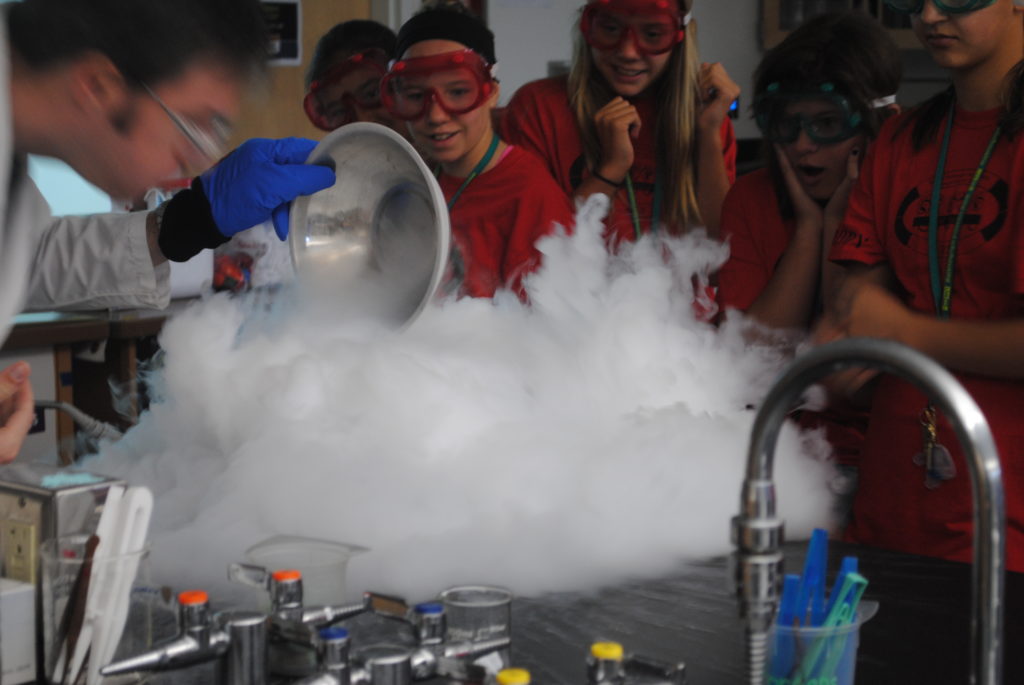
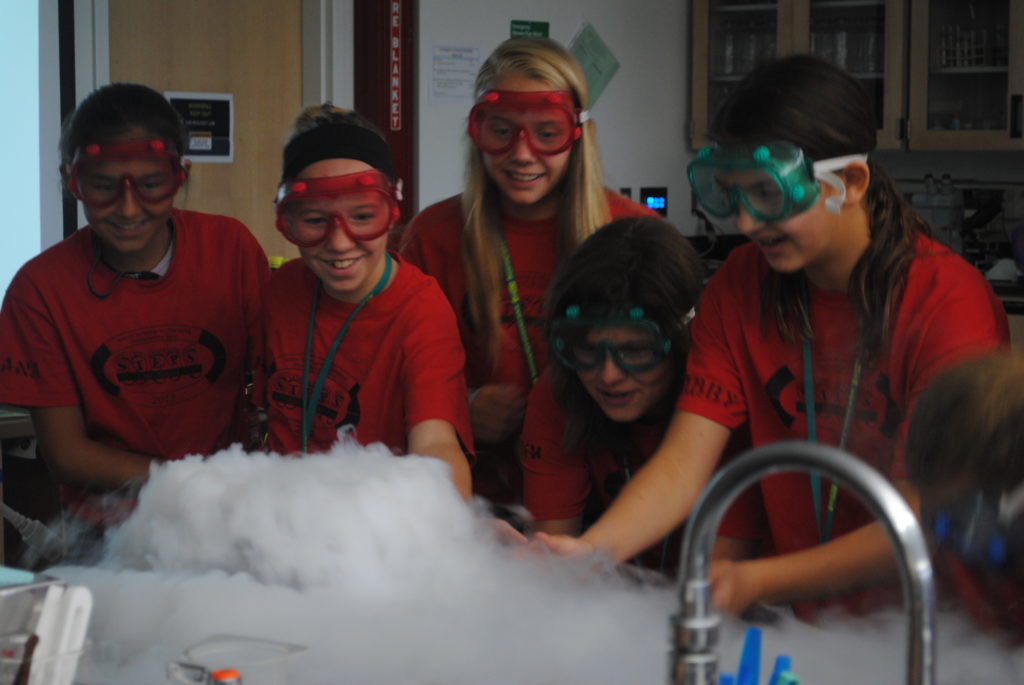
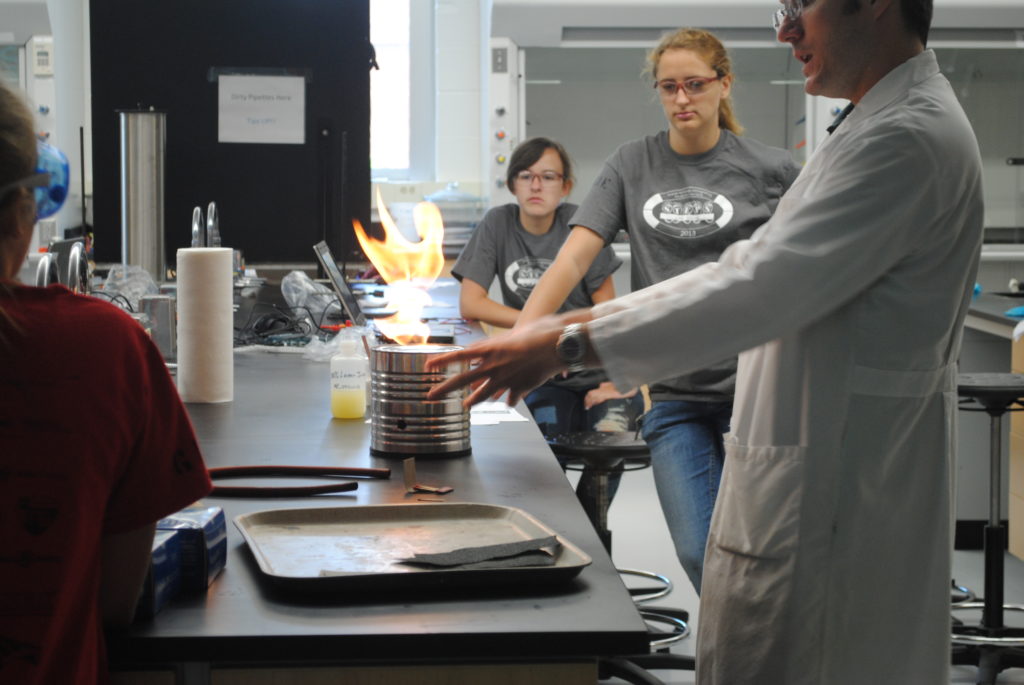
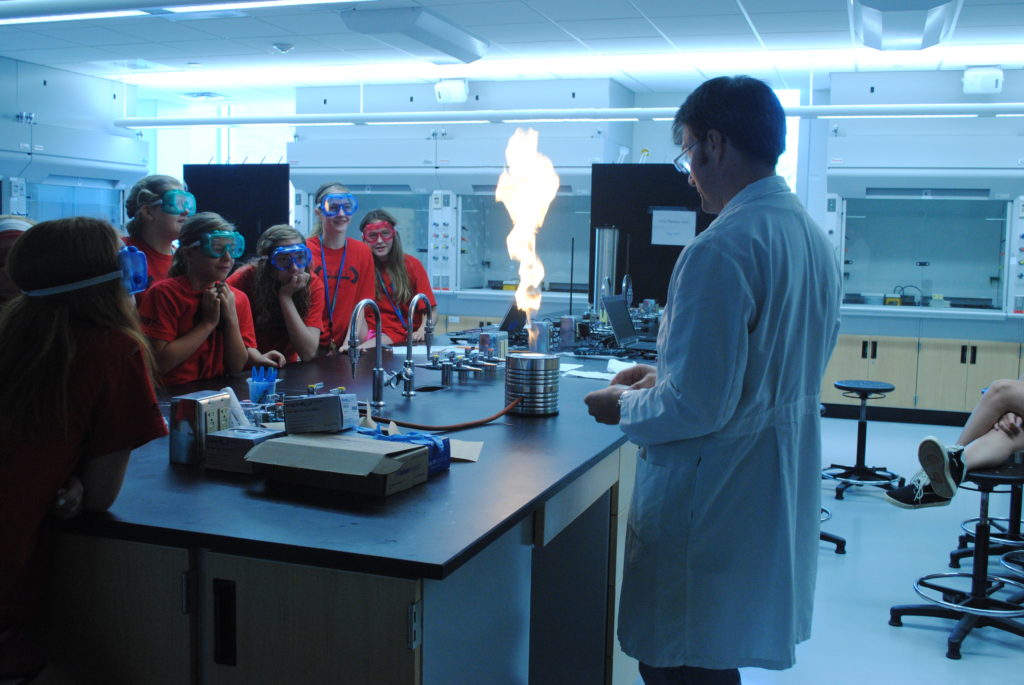
STEPS Chemistry Activity, Summer 2013
STEPS (Science, Technology, and Engineering Preview Summer) Camp is a four day program for 6th grade girls aimed at increasing interest, confidence, skill, and ability in STEM related disciplines. The one and a half hour Chemistry time block was divided into two 45 minute segments. In the first segment, a new chemistry activity was introduced exploring batteries. We began with a discussion of how batteries were used to power the robots the campers made earlier in the week and how many other common electronic devices such as smart phones, laptops, etc. also used batteries. We discussed voltage, current, and resistance in a way that was easy to understand using analogies. The campers then formed groups of two and each camper received a copper electrode, zinc electrode, paper towel, and plastic vial and was instructed on how to assemble a “jelly roll” style battery using lemon juice as the electrolyte. After completing the batteries, the campers used laptops connected to data loggers to collect voltage data from their batteries. They then used their batteries to power various electronic devices and collected current and voltage data from the circuits they created. Devices such as stopwatches, alarm clocks, calculators, LEDs, a telegraph, musical toys, etc. were all powered by the lemon batteries. To power the larger devices, camper groups had to form larger teams and wire their batteries in series to generate higher and higher voltage until finally all 10 batteries were connected to form a “super battery” to power the largest musical devices. The second 45 minute segment was used to explore various topics in chemistry through demonstrations. Topics such as gas forming reactions, the fire triangle and fuel air ratios, spontaneous combustion of gummy bears, cryogens (liquid nitrogen and oxygen), heavier-than‐air vapors, and dust explosions were demonstrated and discussed.
Over the course of the 4 week program, 150 campers participated in the Chemistry event. Each camper filled out an end‐of‐week survey and overall, 88% of the campers rated Chemistry as excellent. Chemistry was the highest rated out of 15 technical activities. From the qualitative data, 41% of campers cited Chemistry as their favorite activity. They cited the experiments, the instructor, and the new experiences as the primary reasons. Chemistry was the most frequently mentioned technical activity. Based on the pre‐ and post‐ camp week surveys, there was a 6% increase overall in the number of campers reporting that they plan to go to college and a 13% increase in the number of campers reporting that they would like to be an engineer or scientist one day. The camp also made a statistically significant difference in reported level of confidence in completing science projects, interest in taking science classes in school, and confidence in earning at least in B in science classes.
Bio:
Matthew Ray is an Associate Professor of Chemistry in the Department of Chemistry and Physics at UW-Stout.
Courses Taught: Chemistry of Materials, Chemistry of Polymers, Physical Chemistry, College Chemistry I, Nanotechnology Applications, and currently developing a course in Industrial Chemistry
Fun facts . . .
Likes: making model rockets and flying them with my own homemade rocket fuel, woodworking, DIY repairs, word problems, thermodynamics
Dislikes: vegetables, poodles, clowns, Justin Bieber
I enjoy being a part of STEPS because I can share my love and enthusiasm for Chemistry with students who are still shaping their future goals, academic plans, and career path. Hopefully, STEPS campers will all become future chemists!